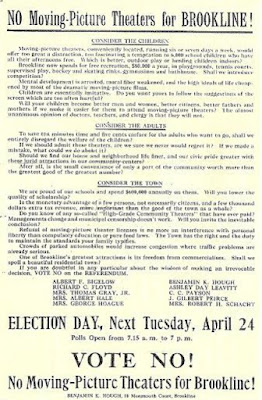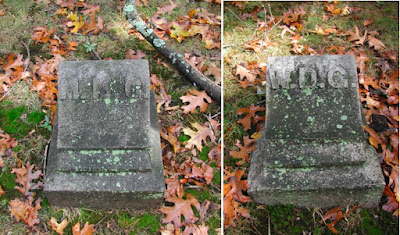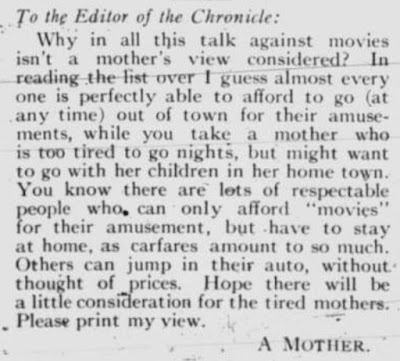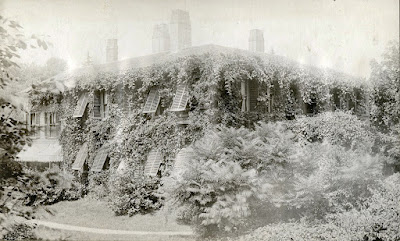 |
| April 24, 1923 (Click image for larger view) |
April 23, 1861 - Grandson of Willam Dawes, first to enlist
April 24, 1923 - Brookline rejects movie theater in referendum
April 26, 1981 - Dedication of Olmsted National Historic Site
April 29, 1989 - 130 arrested at anti-abortion action
Grandson of Willam Dawes, first to enlist
Seventy-six years after his grandfather rode through Brookline on his way to Lexington at the start of the Revolutionary War, 27-year-old William Dwight Goddard became the first Brookline man to enlist in the Union Army at the start of the Civil War.
 |
| Headstones marking the graves of Mehitabel Dawes Goddard and her son William in the Old Burying Ground. |
Brookline rejects movie theater in referendum
By 1913, moving picture theaters had been approved all around the Boston area, including in Dorchester, Roxbury, Back Bay, Cambridge, Somerville, Newton, Belmont, and Watertown. But Brookline, which first rejected the idea of a theater in 1911, remained a holdout.
In April 1923, the issue was put before the voters in a non-binding referendum. Both side mobilized ahead of the vote. Opponents took out a full-page ad in the Brookline Chronicle (shown above.) The same issue of the paper carried a dozen letters to the editor, pro and con, including the one shown below signed "A Mother."
 |
| This letter to the editor was one of many published in the Brookline Chronicle ahead of the April 24th referendum. |
In the end, voters overwhelmingly rejected the notion of a movie theater in town, 5,634 to 1,659. It would be another 10 years before Brookline got its first movie theater, the Coolidge Corner Theatre. (Read much more in this two part blog post on the long struggle to bring the movies to town.)
April 26,1981
Dedication of Olmsted National Historic Site
The Frederick Law Olmsted National Historic Site, encompassing Olmsted's former Brookline home and office, was officially dedicated. The dedication took place on Olmsted's birthday, the last of four days of activities held by the National Association of Olmsted Parks as part of its national conference.
April 29,1989
130 arrested at anti-abortion action
The latest in a long series of efforts to block the entrances to Brookline clinics offering abortion services resulted in the arrest of 130 individuals, the largest number of arrests up to that time. Nationally, there were more than a thousand arrests at actions organized, like the one in Brookline, by the anti-abortion organization Operation Rescue.
 | ||
|
Attempts to block the entrances to three Brookline facilities had been taking place for six months prior to April. They continued well into 1991 -- there were more than 240 arrested in June of that year -- before court injunctions and increased fines and jail terms helped bring an end to them..
In December 1994, an anti-abortion gunman attacked two of the same clinics that had been targeted by Operation Rescue, killing receptionists at the clinics and wounding five other people.

No comments:
Post a Comment